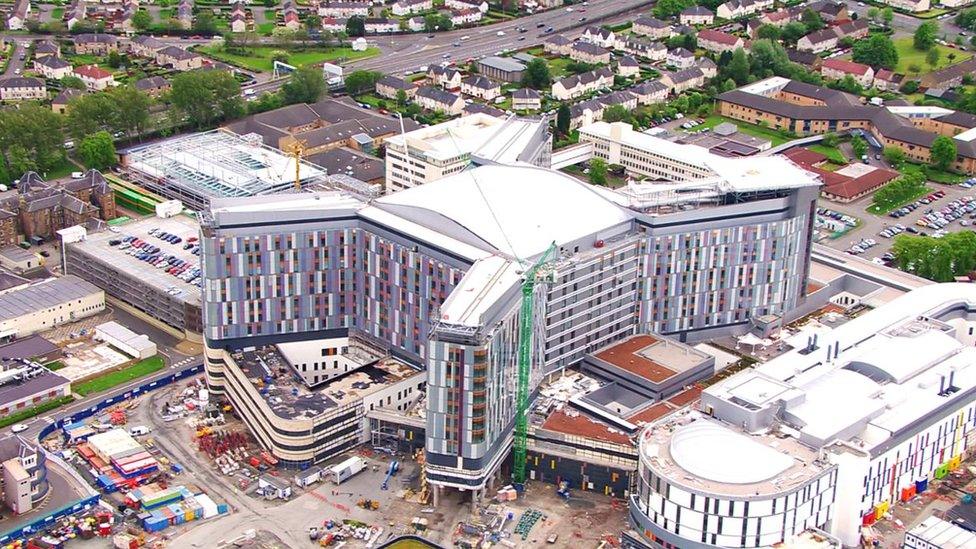Queen Elizabeth University Hospital records 'worst' A&E figures
- Published

Scotland's largest hospital has recorded its worst ever accident and emergency waiting times, figures have shown.
Just under 76% of A&E patients at the Queen Elizabeth University Hospital in Glasgow were treated within four hours in the week ending 11 December.
The Scottish government's target is for 95% to be seen and subsequently admitted, transferred or discharged.
Ministers said an increase in demand had affected waiting times.
Scotland-wide, hospitals recorded their worst performance for 10 months. , 89.9% of A&E patients were dealt with within four hours.
At the 拢842m Queen Elizabeth University Hospital, which opened in April 2015, a total of 1,787 patients attended the hospital's A&E department during the period between 5 and 11 December.
The figures showed 41 A&E patients had to wait more than eight hours and one had to wait more than 12 hours .
'Intolerable' wait
Commenting on the statistics, Scottish Labour's health spokesman Anas Sarwar said that Health Secretary Shona Robison needed to "get a grip of the growing NHS winter crisis".
"These figures show that A&E performance across Scotland is getting worse. The fact that one quarter of A&E patients at the 拢850m Queen Elizabeth University Hospital aren't seen within four hours is unacceptable.
"These figures are yet more evidence that the SNP's decision to allow the closure of the minor injuries unit at Yorkhill Hospital is senseless, reckless and ultimately dangerous."
The Scottish Liberal Democrats said the waiting times recorded at the hospital were "intolerable".
Ms Robison said: "We are monitoring A&E performance closely to ensure no-one is waiting longer than absolutely necessary in our emergency departments.
"This week has been particularly challenging for some of our hospitals with demand increasing by over 5% compared to the same week last year - over 1,200 more patients.
"This increase in demand has affected waiting times in some areas of the country, and we are working particularly closely with those health boards affected to identify and implement immediate solutions."
Ms Robison added that Scottish A&E departments had consistently out-performed other areas of the UK for at least the past 20 months.
- Published2 August 2016
- Published19 January 2016